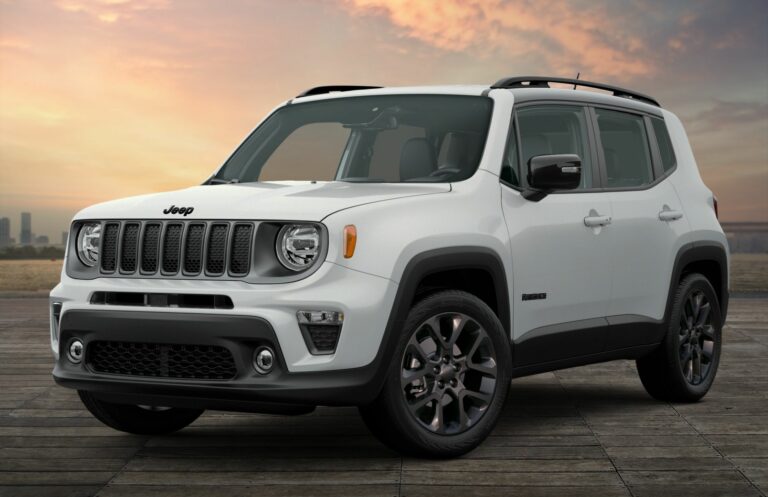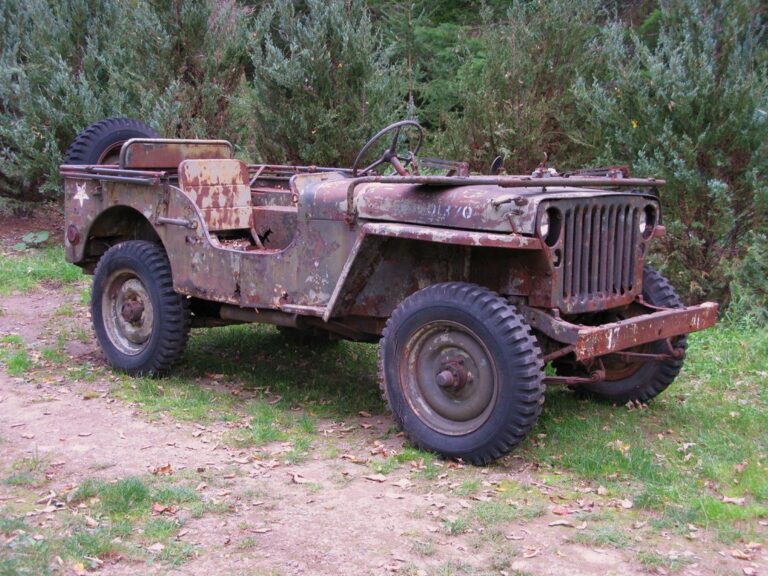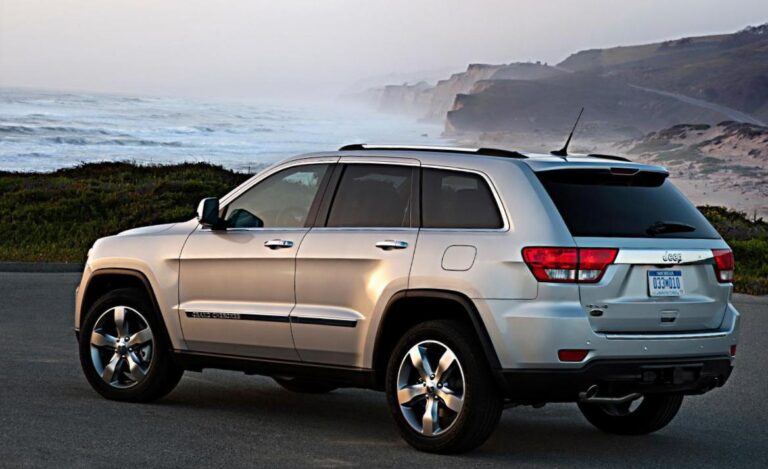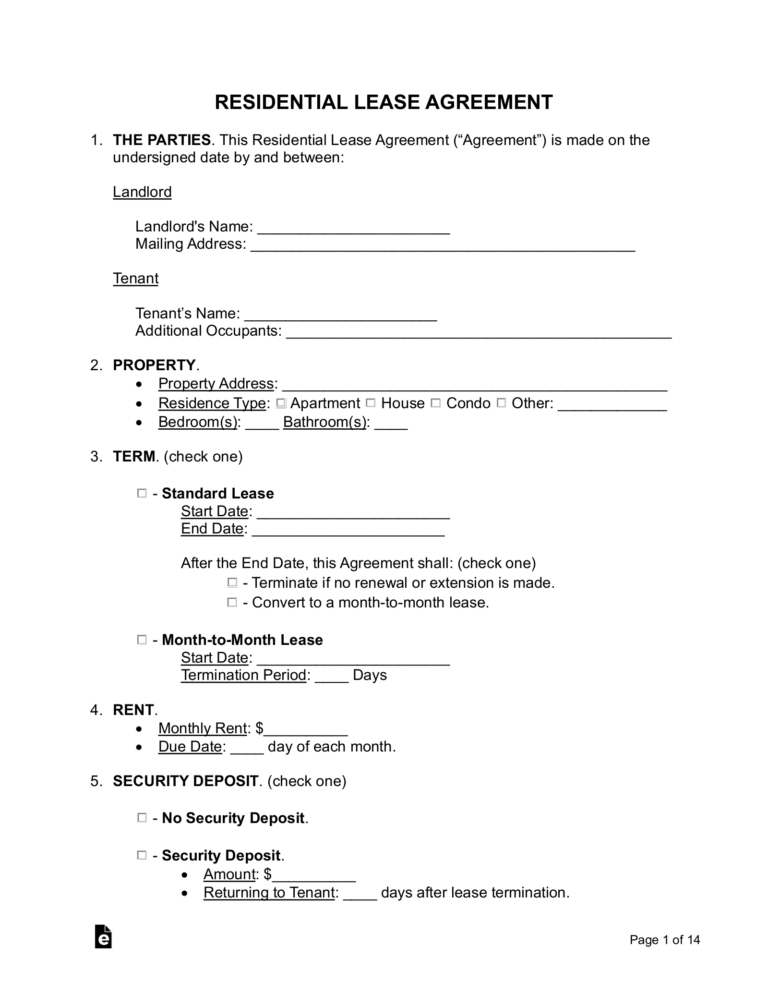2000 Jeep Engine For Sale: Breathing New Life into Your Beloved Off-Roader
2000 Jeep Engine For Sale: Breathing New Life into Your Beloved Off-Roader /jeeps.truckstrend.com
The year 2000 marked a significant point in Jeep’s storied history, with popular models like the Cherokee (XJ), Grand Cherokee (WJ), and Wrangler (TJ) dominating the roads and trails. These vehicles earned a reputation for rugged durability and off-road prowess, but like all machines, their hearts – the engines – eventually show signs of wear and tear. When your trusty 2000 Jeep starts exhibiting symptoms of a failing engine – be it excessive smoke, loss of power, unusual noises, or catastrophic failure – the prospect of a replacement engine, a "2000 Jeep Engine For Sale," emerges as a vital and often more economical alternative to buying a new vehicle.
Finding a suitable replacement engine for your 2000 Jeep isn’t just about swapping parts; it’s about making an informed decision that can extend the life of your beloved vehicle for many more years, preserving its character and saving you significant costs. This comprehensive guide will navigate the complexities of sourcing, purchasing, and installing a 2000 Jeep engine, providing you with the knowledge to make the best choice for your situation.
2000 Jeep Engine For Sale: Breathing New Life into Your Beloved Off-Roader
Why Consider a 2000 Jeep Engine Replacement?
Deciding to replace an engine is a significant step, but for many 2000 Jeep owners, it’s a practical and sensible choice. Here’s why:
- Common Engine Woes: Engines from 2000, particularly the workhorse 4.0L inline-six, the 2.5L four-cylinder, and the 4.7L V8, are known for their longevity but are not immune to age-related issues. Common problems include:
- High Mileage Wear: Piston ring wear, bearing failure, reduced compression leading to power loss.
- Oil Leaks: Especially from rear main seals, valve covers, and oil pan gaskets.
- Cooling System Failures: Overheating, leading to warped cylinder heads or cracked blocks (notably with some 4.0L ‘0331’ head castings and 4.7L V8s if neglected).
- Sludge Buildup: Particularly in 4.7L V8s, if oil changes were infrequent.
- Catastrophic Failure: Rod knock, thrown rods, or complete seizure.

- Cost-Effectiveness: A new vehicle represents a substantial investment. Replacing an engine is often a fraction of that cost, allowing you to retain a vehicle you’re familiar with and that may still have excellent body, suspension, and interior condition.
- Sentimental Value: Many Jeep owners have a deep connection to their vehicles. An engine replacement allows you to keep your cherished rig on the road, preserving memories and avoiding the hassle of finding and adapting to a new car.
- Known Quantity: You already know the history and quirks of your Jeep. Swapping the engine avoids the uncertainties that come with buying a used vehicle from an unknown past.

Identifying the Right 2000 Jeep Engine for Your Model
Before you even start looking for a "2000 Jeep Engine For Sale," you need to accurately identify the specific engine your vehicle requires. This is paramount, as installing the wrong engine can lead to compatibility issues, performance problems, and wasted money.
- Know Your VIN: The Vehicle Identification Number (VIN) is your ultimate guide. It contains codes that specify the original engine installed in your Jeep. Consult a VIN decoder online or refer to your owner’s manual.
- Common 2000 Jeep Engines:
- Jeep Cherokee (XJ): Primarily equipped with the 4.0L I6 (inline-six) or, less commonly, the 2.5L I4 (four-cylinder). The 4.0L is legendary for its robustness.
- Jeep Grand Cherokee (WJ): Featured the 4.0L I6 or the more powerful 4.7L V8 (PowerTech).
- Jeep Wrangler (TJ): Offered with either the 4.0L I6 or the 2.5L I4.
- Engine Types and Conditions:
- Used Engine (Salvage/Junk Yard): These are engines pulled from wrecked or decommissioned vehicles. They are the most affordable but carry the highest risk. Their condition depends entirely on the donor vehicle’s history and mileage. Always ask for compression test results, a video of it running (if possible), and a warranty.
- Remanufactured/Rebuilt Engine: These engines have been completely disassembled, inspected, cleaned, and had worn or damaged parts replaced with new or reconditioned components (e.g., new pistons, rings, bearings, camshaft, valve guides, seals). They are then reassembled to OEM specifications. These offer a good balance of cost and reliability, typically coming with a solid warranty.
- New Crate Engine: While rare and expensive for a 2000 model year, these are brand-new engines straight from the manufacturer or a licensed builder. They offer the highest reliability but also the highest cost, often making them economically unfeasible for older vehicles.

Where to Find a 2000 Jeep Engine For Sale
Once you know what you need, the hunt begins. Several avenues exist for sourcing a replacement engine:
- Local Salvage Yards/Auto Recyclers: Often the cheapest option for used engines. You can physically inspect the engine (if it’s still in the donor vehicle) and potentially negotiate. Look for yards specializing in Jeeps or 4x4s.
- Specialized Engine Rebuilders/Suppliers: These companies focus solely on engines, offering a range from tested used units to professionally remanufactured ones. They often provide better warranties and technical support. Many operate nationally with shipping services.
- Online Marketplaces: Websites like eBay, Craigslist, or dedicated auto parts sites (e.g., Car-Part.com) can connect you with sellers nationwide. Be extremely cautious and verify seller reputation, ask for detailed photos/videos, and ensure secure payment methods.
- Dealerships: While they might not stock used or remanufactured engines, they can sometimes order new crate engines (if available) or connect you with their preferred parts suppliers. This is typically the most expensive route.
Key Considerations Before Purchase
A "2000 Jeep Engine For Sale" isn’t just a generic item; it’s a specific component that requires careful vetting.
- Warranty: This is non-negotiable. For used engines, a 30-90 day warranty on parts is common. For remanufactured engines, 1-3 years or 12,000-36,000 miles is standard. Understand what the warranty covers (parts only, or parts and labor?), what voids it, and the return policy.
- Completeness:
- Long Block: Includes the engine block, crankshaft, connecting rods, pistons, cylinder head(s), camshaft(s), and valve train. You’ll need to transfer all accessories (intake manifold, exhaust manifold, sensors, throttle body, fuel injectors, alternator, power steering pump, AC compressor, wiring harness, etc.) from your old engine. This is cheaper but requires more labor and parts.
- Complete Engine: Includes the long block plus most or all of the accessories. More expensive upfront but simplifies installation. Confirm exactly what’s included.
- Mileage and History (for used engines): Low mileage is desirable, but provenance is key. Can the seller provide proof of mileage? Was the donor vehicle well-maintained?
- Shipping & Logistics: Engines are heavy. Factor in shipping costs, delivery time, and how the engine will be offloaded at your location.
- Budget: Beyond the engine cost, account for potential installation costs, new fluids, gaskets, spark plugs, belts, hoses, and any accessories not included with the engine.
- Emissions Compliance: Ensure the replacement engine meets local emissions standards. This is generally not an issue if it’s the correct original engine type for your vehicle.
The Installation Process: DIY vs. Professional
Once you have your "2000 Jeep Engine For Sale" in hand, the next step is installation.
- DIY Installation:
- Pros: Significant cost savings on labor, satisfaction of doing it yourself.
- Cons: Requires extensive mechanical knowledge, specialized tools (engine hoist, stand, torque wrenches), a suitable workspace, and considerable time commitment. There’s a risk of damage or improper installation if inexperienced.
- Professional Installation:
- Pros: Expertise, specialized tools, typically faster, and often comes with a labor warranty. A professional shop can identify and replace other worn components (motor mounts, hoses, sensors) during the swap.
- Cons: Higher overall cost due to labor charges.
- Recommendation: Unless you are an experienced mechanic with the right equipment, professional installation is highly recommended to ensure proper function and warranty validity.
Tips for Longevity After Engine Replacement
An engine replacement is an investment. Protect it by following these practices:
- Break-In Period (for remanufactured/new engines): Follow the manufacturer’s specific break-in instructions. This often involves varying RPMs, avoiding heavy loads, and an initial oil change after a few hundred miles.
- Regular Maintenance: Adhere to or exceed the manufacturer’s recommended maintenance schedule for oil changes, filter replacements, coolant flushes, and spark plug changes. Use high-quality fluids and parts.
- Address Underlying Issues: If a specific issue caused your original engine to fail (e.g., persistent overheating, poor oil pressure), ensure that root cause is resolved before running the new engine.
- Monitor Gauges: Pay attention to your oil pressure, temperature, and check engine light. Early detection of problems can prevent costly damage.
Potential Challenges and Solutions
- Finding the Exact Match: Even with VINs, slight variations can exist. Solution: Work with reputable suppliers who guarantee fitment or offer a clear return policy. Double-check part numbers.
- Shipping Damage: Engines are heavy and can be mishandled. Solution: Inspect the engine immediately upon arrival before signing off on delivery. Document any damage with photos and refuse delivery if severe.
- Engine Not Running as Expected: Post-installation issues can arise. Solution: Ensure all sensors are connected, fluids are correct, and timing is accurate. If professionally installed, leverage their warranty.
- Warranty Claims: Sometimes, even a warranted engine can fail. Solution: Keep all documentation (receipts, installation records). Understand the warranty terms thoroughly and communicate clearly with the seller/installer.
Concluding Summary
The "2000 Jeep Engine For Sale" market offers a viable and often superior alternative to abandoning your beloved Jeep when its original engine gives out. By understanding the types of engines available, knowing how to identify the correct one for your model, diligently vetting sellers, and considering professional installation, you can successfully navigate the process.
An engine replacement is more than just a repair; it’s an investment in your vehicle’s future. With proper care and maintenance, a new or remanufactured engine can provide many more years of reliable service, allowing you to continue enjoying the legendary performance and spirit of your 2000 Jeep. It’s a testament to the enduring appeal of these vehicles that owners are willing to make such an investment, ensuring that the legacy of the 2000 Jeep lives on, mile after adventurous mile.
Estimated 2000 Jeep Engine Price Guide
Disclaimer: These prices are highly approximate and can vary significantly based on engine condition, supplier (salvage yard, remanufacturer, dealer), mileage, completeness (long block vs. complete), warranty, and geographic location. Installation costs also vary by shop and region. This table is for general guidance only.
| Engine Type | Condition | Estimated Engine Cost (USD) | Estimated Installation Cost (USD) | Total Estimated Cost (USD) | Key Features/Notes |
|---|---|---|---|---|---|
| 4.0L I6 (Cherokee/Wrangler/Grand Cherokee) | Used (Salvage) | $800 – $2,000 | $1,000 – $2,500 | $1,800 – $4,500 | Cheapest option; condition highly variable. Often comes as long block. Limited warranty (30-90 days). |
| 4.0L I6 (Cherokee/Wrangler/Grand Cherokee) | Remanufactured/Rebuilt | $2,500 – $4,500 | $1,000 – $2,500 | $3,500 – $7,000 | Good balance of cost & reliability. Comes with better warranty (1-3 years). Often includes updated components. |
| 2.5L I4 (Cherokee/Wrangler) | Used (Salvage) | $600 – $1,500 | $900 – $2,000 | $1,500 – $3,500 | Less common, but generally similar cost structure to 4.0L used. |
| 2.5L I4 (Cherokee/Wrangler) | Remanufactured/Rebuilt | $2,000 – $3,500 | $900 – $2,000 | $2,900 – $5,500 | Reliable option for the 4-cylinder. |
| 4.7L V8 (Grand Cherokee) | Used (Salvage) | $1,000 – $2,500 | $1,200 – $2,800 | $2,200 – $5,300 | Can be more complex due to V8 design. Check for history of overheating/sludge. |
| 4.7L V8 (Grand Cherokee) | Remanufactured/Rebuilt | $3,000 – $5,500 | $1,200 – $2,800 | $4,200 – $8,300 | Best option for V8 reliability, often addresses known factory weaknesses. |
Additional Costs to Consider: Fluids, gaskets, seals, spark plugs, belts, hoses, motor mounts, sensors, exhaust components, potential towing.
Frequently Asked Questions (FAQ) about 2000 Jeep Engines
Q1: What’s the main difference between a "used" and a "remanufactured" 2000 Jeep engine?
A1: A used engine is pulled directly from another vehicle and is sold in its existing condition, with minimal testing. Its history and true internal condition are often unknown. A remanufactured engine has been completely disassembled, cleaned, inspected, and had all worn or damaged parts replaced with new or reconditioned components, then reassembled to meet or exceed OEM specifications. Remanufactured engines typically come with a much better warranty.
Q2: How do I know which engine my 2000 Jeep has?
A2: The most accurate way is to check your Vehicle Identification Number (VIN). The 8th digit of your VIN often corresponds to the engine code. You can use an online VIN decoder or consult your owner’s manual. Common engines for 2000 Jeeps are the 4.0L I6, 2.5L I4, and 4.7L V8.
Q3: Do replacement 2000 Jeep engines come with a warranty?
A3: Most do, but the length and coverage vary greatly. Used engines might have a 30-90 day parts-only warranty. Remanufactured engines typically offer 1-3 years or 12,000-36,000 miles, often covering both parts and sometimes labor. Always get the warranty details in writing and understand what voids it.
Q4: Can I install a 2000 Jeep engine myself?
A4: If you have extensive mechanical experience, the necessary specialized tools (like an engine hoist and stand), a proper workspace, and ample time, then DIY is possible. However, it’s a complex and labor-intensive job. For most owners, professional installation is recommended to ensure correctness, safety, and to leverage shop warranties on labor.
Q5: What other parts might I need to replace when swapping out my 2000 Jeep engine?
A5: Even with a complete engine, you’ll likely need new fluids (oil, coolant), new gaskets and seals (especially for accessories not included), spark plugs, and potentially new belts, hoses, motor mounts, and various sensors. If your original engine failed due to an ancillary component (e.g., a clogged radiator or faulty sensor), replace those as well to prevent future issues.
Q6: How long does an engine replacement typically take?
A6: For a professional shop, a 2000 Jeep engine swap can typically take 1-3 days of labor, depending on the shop’s schedule, the complexity of the engine, and whether any unexpected issues arise. DIY can take significantly longer, ranging from a few days to several weeks, depending on skill and available time.







